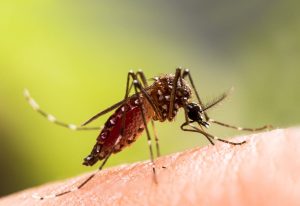IN A RECENT ARTICLE for the Huffington Post entitled “Why Women Shouldn’t Have To Justify Their Choice of Birth Control,” writer Jill Knapp described how on her fifth date with a guy he asked her if she was taking the birth control pill. For a number of reasons, explained in the piece, Jill does not. She continued:
“The next (and last) time we hung out, we got to talking about us and he told me he had an important concern that would affect us dating in the long-term. So, what was this concern, you ask? Was it that I was separated and he didn’t want to be a part of all of that drama? Was it that I didn’t know how to cook and could probably never prepare his favorite dish for him? Or was it perhaps the fact that we had different political views? No, it was none of these things. It was the revelation that I wasn’t on the birth control pill, and that bothered him because sex with a condom “just doesn’t feel as good.” The conversation went a little south from there.”
In a feature for the UK Guardian last month, multiple young women were interviewed about their reasons for not using the Pill. Many explained that they also found their partners to be uncomfortable with using condoms regularly, which left them in a quandary. The idea that condom use equals poor-quality sex has become an accepted fact of life.
More and more often, I hear stories from my single friends of men pushing sex sans condoms the first time they get intimate — even in pretty clear one-night-stand situations. The implication is always that a woman wanting to use a condom is a problem and that plenty of other women will not argue. Condom use is suggested to be unfashionable, unattractive, and unnecessary. In these situations, it’s the debate rather than the condom that is the passion-killer.
Despite the fact that women are only fertile and therefore able to get pregnant for a relatively short time during their monthly cycle, — yet men and women can get STDs any day of the week and far more easily — we seem to see condoms as the afterthought of sex-related concerns. A recent study showed that a large number of men and women in their teens and twenties have “perceived infertility” – that is, usually due to their habit of having unprotected sex, they have come to believe they are not fertile just because that sex has not yet caused a pregnancy. Their “perceived infertility” compels them to go on having more unprotected sex.
Since a law was passed in Los Angeles County to mandate the use of condoms in pornography filmmaking, productions in the area have plummeted. Actors, directors and producers of the industry have argued that, due to frequent testing for HIV, the process is made very safe for those involved. Condoms, they say, make it difficult for performers to maintain erections and cause irritation and discomfort to the women. Most importantly, they argue, the audience does not want to see condom use in pornography. Although they may well be right about transmission of STDs within the porn world, the influence of pornography on the sexual habits of non-performers — that is, consumers of porn — is becoming ever clearer. If there are no condoms in porn, will it be the audience members, the general public, who will be most in danger of picking up STDs?
So, how exactly did we come to hate condoms? When men complain that condoms make sex feel less than great, my first thought is how hormonal birth control methods can cause decreased libido for some women, plus diminished sexual interest, lowered sexual arousal, less desire to initiate sex, and decreased sexual enjoyment (not to mention less and lower-intensity orgasms). One study found that the kicking your libido takes on the Pill could, for some women, be permanent and your desire remain low even after you come off.
But, to be fair, it’s not just men who don’t like condoms. It seems more and more women are speaking out against them too.
As someone who has spent considerable time looking for the right condoms, I can see how what we can find on the shelves at Rite Aid might not be appealing. When it comes to other birth control options we’re all about choice, but when it comes to condoms it seems we assume we have to accept only what we can find at the local pharmacy.
Our culture’s seeming aversion to condoms might just be a Western phenomenon. In Japan, use of the Pill is very low and use of condoms is very high. Their contraception culture has women seeing condom use as a sign of love and commitment and a shared belief that men should also shoulder the burden of pregnancy prevention. You may have seen photos of crazy and fun condom packaging in Japan, but they don’t put that kind of effort just into marketing schemes — Japanese manufacturing mandates require higher and more stringent levels of safety testing. Plus, due to their popularity, condom companies put time and money into developing more user-friendly and enjoyable designs. It’s one of those kinds of vicious cycles you actually hope to see, and Japanese-brand condoms like Okamoto’s Crown and Beyond Seven can be easily bought online in the US.
When it comes to the “irritation and discomfort caused to women” argument, it often comes down to the spermicides or lubricants included with mainstream condoms. While people talk about latex allergies like they’re as pervasive as allergies to dust or pollen, the fact is that less than 1% of people suffer from an actual latex allergy. Using natural spermicides like Contragel, which is also available online, in conjunction with condoms makes for an extremely effective way of preventing both pregnancy and STDs. And when those condoms are chemical-free like Sir Richards, which you can actually buy at your local pharmacy (if that local pharmacy is a Target), the discomfort becomes virtually nil, as are the arguments for not using condoms in the first place.
Since condoms are the only male-centered birth control method out there (aside from sterilization), it seems a little off, to say the least, that they’re maligned so much by men. Women are constantly told that we need to shop around to find the right hormonal birth control method for us, but maybe it’s time that men (and women) start looking into their condom options more carefully.


-300x200.jpeg)









-300x241.jpeg)




